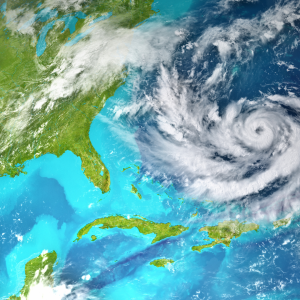Hurricane season is upon us and while nothing is forecasted in the immediate future, now is the time to review emergency procedures and ensure your building and records are secured. Remember, water can always find a way to enter a building especially when there are roofing or basement issues. Even a small leak can become a major problem in a tropical storm or hurricane.
Here are some reminders regarding precautions to take:
- Know what’s coming your way. Track approaching storms at the National Hurricane Center website in English and Spanish.
- Be personally prepared. Learn what you need to do to be ready at home so you can focus on what you need to do to be prepared at your agency.
- Keep contact information for key staff, services, and resources with you at all times.
- Review your agency or department emergency response plan, update it as necessary, and take it home with you.
- Back up your electronic records and store the backup in a safe place off site if this is not already handled by your IT services.
- Move records out of basements and off floors.
- Gather plastic sheeting for covering records and computer equipment stored in vulnerable locations.
- Move records and computer equipment away from windows and below-ground areas into water-resistant areas. Avoid areas under roofs.
- Know location and procedures for shutting off water, gas, and electricity.
- Move outdoor objects indoors or secure in place.
- Clean gutters to allow water to flow away from your building.
- Hold a planning meeting with staff today!
If you experience an issue from a storm, you can call Kathy Craughwell-Varda at Conservation ConneCTion for assistance at (203) 241-0618.
Additional Resources for Emergency Response
- The American Institute for Conservation Collections Emergency Response Team (AIC-CERT) responds to the needs of cultural institutions during emergencies and disasters through coordinated efforts with first responders, state agencies, vendors and the public. For 24-hour assistance, call (202) 661-8068. For more information on AIC disaster response and recovery information visit the AIC website.
- The Northeast Document Center as part of its Preservation Services program offers an emergency assistance program for institutions and individuals with damaged paper-based collections. Call the Disaster Assistance Hotline: (978) 470-1010.
- Lyrasis – if your library or institution has suffered damage and would like to request assistance, contact LYRASIS Preservation Services at (504) 300-9478. Preservation Services staff are available to provide advice on salvaging collections or connect you to additional resources 24/7. This service is free of charge.
Stay alert! Even if you have not had any previous issues, there is always a first time.
Resources for the Public and Historic Property Owners
The Federal Emergency Management Agency (FEMA) and the Smithsonian Institution co-sponsor the Heritage Emergency National Task Force, a partnership of 42 national service organizations and federal agencies created to protect cultural heritage from the damaging effects of natural disasters and other emergencies.
The Task Force provides resources to help the public salvage cherished photographs, letters, and other irreplaceable objects:
Fact sheet: Salvaging Water-Damaged Family Valuables and Treasures FEMA.gov
Fact sheet: After the Flood: Advice for Salvaging Damaged Family Treasures FEMA.gov
The above two fact sheets are also available in additional languages at Heritage Emergency National Task Force.
Please help disseminate this important information before disaster survivors throw their precious, irreplaceable objects away.









